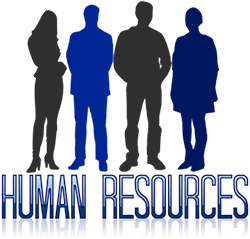 We usually think of HR helping to avoid employment practice risks. We want to make sure not to be trapped in wage and hour claims, discrimination and harassment litigation, and wrongful termination lawsuits. Then there’s leave management, including ADA and FMLA. Although these are the major issues in HR risk management, HR is also instrumental in helping with other aspects of managing risk, such as:
We usually think of HR helping to avoid employment practice risks. We want to make sure not to be trapped in wage and hour claims, discrimination and harassment litigation, and wrongful termination lawsuits. Then there’s leave management, including ADA and FMLA. Although these are the major issues in HR risk management, HR is also instrumental in helping with other aspects of managing risk, such as:
Workers Compensation — Insurance companies don’t pay claims, they finance them. When you suffer a Comp claim, your experience modifier (“mod”) increases to repay the claim during a three-year period at a high interest rate. This can be the most expensive money that your company borrows. That’s one reason we recommend that employers do everything possible to get employees returned to work. Has your HR person helped develop a comprehensive return-to-work program?
Cyber Liability — To what extent are poor employee practices leaving your information systems vulnerable? To what degree is HR working with IT and security to make sure that new employees receive proper orientation and terminated employees are managed effectively from a security standpoint? For example, what precautions have you taken to have mobile devices returned, passwords retrieved, trade secrets protected, etc.? To what degree does HR make sure that telecommuting employees don’t expose the company to cyber risks?
Social Media — One element of cyber liability, risk from social media, is expanding every day. Has HR made it clear who owns the company Twitter account? Have they set social media guidelines? Do they know how to respond to any perceived risks, such as negative employee postings? Privacy exposures — Whether it’s medical records (HIPAA), Social Security information, financial information, etc., employees can both generate exposures and be subject to them.
Disaster Planning — One disaster can wipe out your company overnight. Whether it’s a tornado, hurricane, earthquake, flood, or a brutal snowstorm, the news is replete with the devastating impact of such events. To what degree has HR helped generate a plan to protect the company in the aftermath of a disaster?
Employee Benefits — With a growing number of ERISA claims and a rapidly changing benefits landscape, HR is thick in the mix. Who is responsible for staying on top of the emerging benefit trends?
Perhaps the greatest risk that HR can help with is growing the business: Providing strategic advice about what your company needs for growth and how to move in this direction. At smaller companies, it’s difficult for the HR executive to wear all these hats. In this situation, many businesses have partnered with their insurance agency or other professional providers of risk management services.





